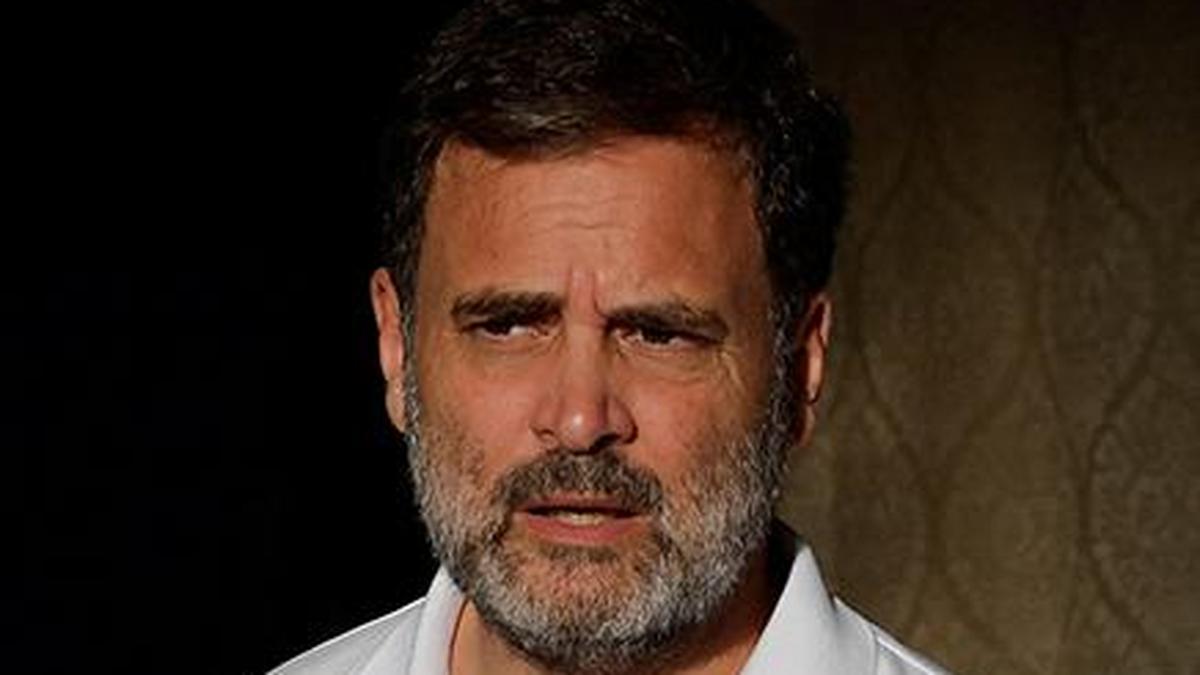Rahul Gandhi's Vietnam Trip Sparks Political Firestorm: BJP Accuses of Exploiting Manmohan Singh's Death
The recent passing of former Prime Minister Dr. Manmohan Singh has ignited a political firestorm in India, with the BJP launching a scathing attack on Rahul Gandhi for his trip to Vietnam amidst the national mourning. The BJP alleges that Gandhi's trip represents a callous disregard for the late Prime Minister and a blatant attempt to exploit his death for political gain. The controversy is a prime example of how even the most somber of occasions can quickly devolve into a heated political battle in India's dynamic political landscape. Is this a fair accusation, or is it simply opportunistic political maneuvering?
BJP's Accusations and the ensuing controversy
The Bharatiya Janata Party (BJP) has leveled serious accusations against Rahul Gandhi, alleging that he showed a lack of respect by traveling to Vietnam during the period of national mourning. The party's IT cell head, Amit Malviya, took to X (formerly Twitter) to express outrage, stating that while the nation mourned the loss of a respected figure, Gandhi was enjoying a New Year's vacation overseas. Malviya further asserted that Gandhi's actions indicate not only poor judgment but also an attempt to utilize the former Prime Minister's death to his political advantage. This direct accusation ignited a swift and highly public backlash.
The BJP's Argument:
The BJP claims that Gandhi's trip reveals a pattern of behavior showing contempt for the late Prime Minister and a prioritization of personal interests over national respect. They cite his political activities during the period of national mourning and suggest a more sensitive response was expected given Dr. Singh’s stature and contributions to the nation.
The Political Fallout:
The BJP's criticism has rapidly intensified, adding fuel to the already contentious relationship between the BJP and the Congress party. This high-profile spat risks escalating into a wider political conflict, and both sides appear locked in a heated exchange that shows no immediate sign of de-escalation. Political analysts predict that the incident will have implications going into future elections. How this will specifically affect voter sentiment and party politics remains to be seen.
The Congress's Response and Counter-Arguments
The Congress party strongly defended Rahul Gandhi's actions, accusing the BJP of engaging in "take diversion" politics. Party leader Manickam Tagore countered the BJP's criticism, questioning the motives behind the party's attack and asserting that Gandhi's personal trip is inconsequential. Furthermore, Tagore pointed to other incidents involving treatment of the family of Dr. Singh, adding to the complexity and emotional weight of the controversy. The statement emphasizes an argument suggesting the focus on Gandhi's trip is a deflection from more critical issues.
The Congress's Counterattack
Tagore questioned the BJP's intent, implying their criticism is a means to shift the public's attention from other issues. He highlighted alleged improper actions concerning Dr. Singh's cremation, arguing the focus should remain on these concerns, and suggesting the controversy surrounding Gandhi's trip is a calculated distraction from a separate narrative. The focus on alleged insensitivity on both sides serves to highlight the highly polarizing aspects of the controversy.
Wider Implications and the future
The sharp exchange between the two major political forces has exposed deeper divisions within the Indian political landscape, reigniting questions about respect, appropriate conduct during times of national mourning, and ultimately, political strategy. It’s highly likely that this exchange will be heavily scrutinized by both sides leading to potentially contentious policy debates moving forward.
Analyzing the Accusations and Exploring the nuances
The accusations made by the BJP against Rahul Gandhi require careful consideration. Was Gandhi's trip truly insensitive? Was it an attempt to exploit Dr. Singh's death? These questions don’t have clear answers, making this controversy multifaceted and heavily charged emotionally and politically.
Context is Crucial
Understanding the full context, including Gandhi's travel plans, personal circumstances, and possible security considerations, is crucial to fairly assess this situation. Jumping to conclusions, without fully understanding the totality of facts at hand, risks misinterpreting events, and contributing to the potential for biased narratives to spread widely.
The role of social media
Social media platforms significantly amplified this political skirmish. The speed at which accusations and counterarguments spread online illustrates both the strengths and weaknesses of the digital public square. However, it's crucial to approach this with critical thinking and consider the multiple viewpoints expressed.
Conclusion: What Can We Take Away?
The controversy surrounding Rahul Gandhi's trip to Vietnam has unveiled the stark realities of Indian politics—a landscape rife with both political point-scoring and emotional considerations. The death of a prominent figure like Dr. Manmohan Singh evokes significant emotions across the nation, leaving ample space for deeply divided viewpoints on the various matters in question.
Take Away Points:
- The BJP's accusations are serious and must be given proper attention and consideration.
- The Congress’s counterarguments also deserve acknowledgment and contemplation.
- Social media can fuel the fire of political clashes—use it responsibly, prioritize critical thinking, and consider all sides of a debate carefully.
- The incident has again thrown into the spotlight the ever-present friction and highly competitive political environment between the two major political forces.
- This case illustrates the ongoing issues in how events are presented and the ease with which both individual and collective perspectives are misrepresented in a highly charged political environment.




